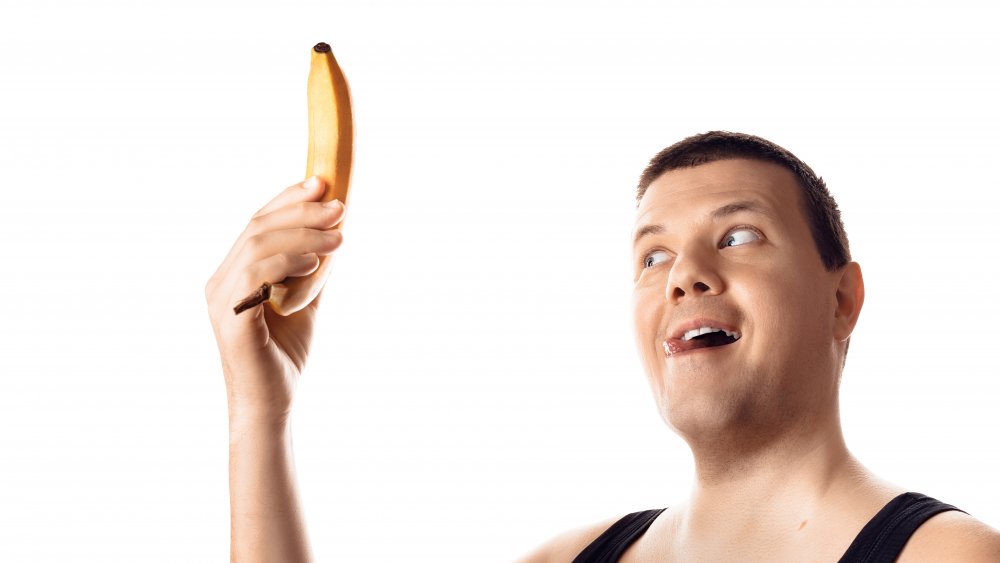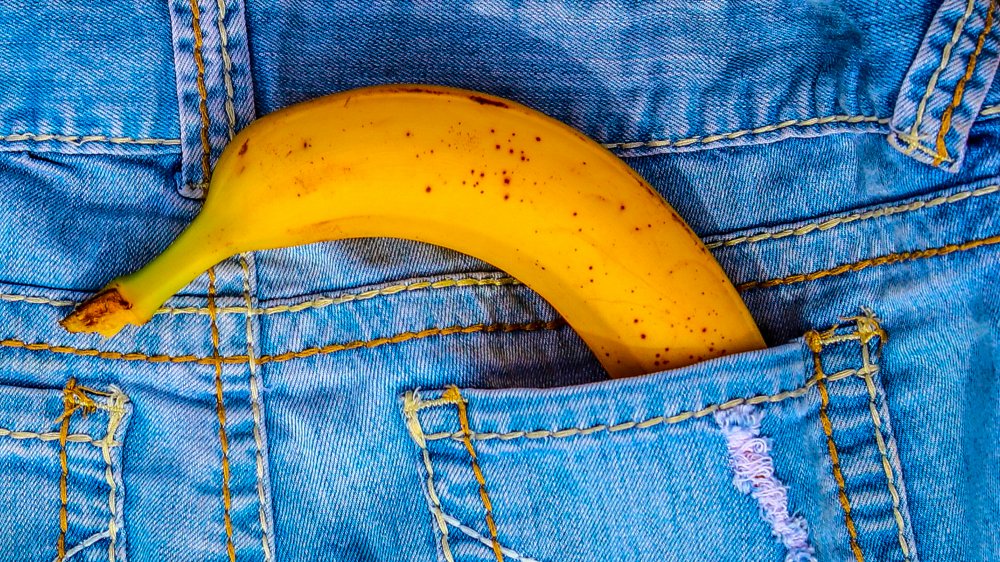Here's How Much DNA Humans Really Share With Bananas
Your cousin Bob is a weird dude, but because he's family, you accept him. The same goes for chimpanzees and orangutans, those fine furry folks who share most of the same DNA as humans, and are just one invitation away from joining your Thanksgiving table. Unfortunately, genetic family trees get a tad creepier when you realize that the long, yellow fruit in your pantry also shares about half your genes.
Yes, meet Uncle Banana, the family member you've been baking into your bread. Cannibalism, much?
Not quite. While your geeky friends might love to tell you that you're related to bananas, and you shake your head in denial, the truth is somewhere in the middle. First off, it's important to recognize that while DNA has become a hot buzzword in Marvel movies and conspiracy theories alike, the science is a bit more complex. As explained by the U.S. National Library of Medicine, DNA is just a more friendly way to describe deoxyribonucleic acid, which is the hereditary material found in pretty much any life form on Earth. Now, while every human being shares almost exactly the same DNA as one another — yes, even you and Cousin Bob — most of your body is also composed of the same genetic material as anything on two, four, or eight legs. Chimpanzees share about 98.8 percent of the same DNA as you, according to Popular Science, but you'd probably be surprised to learn that your genetic similarities to both elephants and mice are in 80-something range. Even chickens share 70 percent of the same genes as humans. Weird.
Is that a banana in your genes?
So, how about them tasty bananas? Yep, the rumors are true. Popular Science says they share approximately 44.1 percent of the same genes as human beings, while the National Human Genome Research Institute raises that number to the 60 percent range, according to Business Insider. Yikes! Before you go dressing your bananas in cute little outfits and name tags, though, realize that cucumbers also share 37.7 percent of your genes. In fact, all food — yes, everything you've ever digested — contains DNA, and in that regard, there's nothing particularly unique about bananas. Keep in mind, as Get Science points out, all forms of life evolved from a single-celled common ancestor. That's why so much overlap exists, so these genetic similarities aren't really as funky as they sound.
So, relax. You don't have to give up your grandma's chocolate chip banana bars, because banana eating doesn't count as cannibalism. But yes, on a genetic level, humans and bananas are arguably more similar than different.

